Medicinal Plant Names Services (MPNS) is working to improve communication in health, regulation and research. It provides a free portal that users can search for the currently accepted scientific name of a plant, full synonymy, as well as scientific, pharmaceutical and common names as they are published in pharmacopoeias and other reference works from around the world. MPSN also offers a range of services for individuals and organisations that manage data on medicinal plants.
 The European Scientific Cooperative on Phytotherapy (ESCOP) is an umbrella organisation representing national phytotherapy associations across Europe, facilitating cooperation between these organisations and effective liaison with European medicines regulators. ESCOP Monographsprovide authoritative summaries of scientific evidence supporting the medicinal uses of herbal substances.The ESCOP Herb Reference iPhone® App offers concise information on 100 herbs and their uses for a range of everyday conditions.
The European Scientific Cooperative on Phytotherapy (ESCOP) is an umbrella organisation representing national phytotherapy associations across Europe, facilitating cooperation between these organisations and effective liaison with European medicines regulators. ESCOP Monographsprovide authoritative summaries of scientific evidence supporting the medicinal uses of herbal substances.The ESCOP Herb Reference iPhone® App offers concise information on 100 herbs and their uses for a range of everyday conditions.
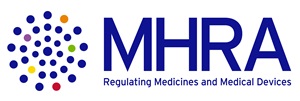 The Medicines and Healthcare Products Regulatory Agency (MHRA)is an executive agency of the Department of Health. It is responsible for regulating all medicines in the UK.The MHRA endeavours to safeguard public health
The Medicines and Healthcare Products Regulatory Agency (MHRA)is an executive agency of the Department of Health. It is responsible for regulating all medicines in the UK.The MHRA endeavours to safeguard public health
- by ensuring that the products it regulates meet required standards, work and are acceptably safe,
- by providing accurate, timely and authoritative information to healthcare professionals, patients and the public,
- by influencing the regulatory framework through European Union and international relationships, and
- by ensuring compliance with regulations.
 The Veterinary Medicines Directorate (VMD), an Executive Agency of the Department for Environment, Food and Rural Affairs (Defra), protects public health, animal health and the environment. It promotes animal welfare by assuring the safety, quality and efficacy of veterinary medicines in the United Kingdom.
The Veterinary Medicines Directorate (VMD), an Executive Agency of the Department for Environment, Food and Rural Affairs (Defra), protects public health, animal health and the environment. It promotes animal welfare by assuring the safety, quality and efficacy of veterinary medicines in the United Kingdom.
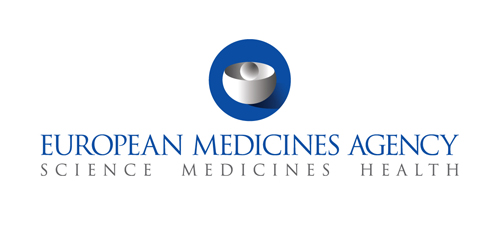 The European Medicines Agency (EMA), a decentralised agency of the European Union located in London, is responsible for the scientific evaluation of medicines for use in the EU. The Committee on Herbal Medicinal Products (HMPC) at the EMA provides EU Member States and European institutions with scientific opinion on questions relating to herbal medicinal products. It is composed of scientific experts, one member and one alternate member being nominated by each EU Member State and also by Iceland and Norway (EEA-EFTA states).The HMPC aims to assist EU harmonisation of procedures and provisions for herbal medicinal products. Its key tasks include the preparation of Community Herbal Monographs, which provide information concerning the medicinal use of herbal substances or preparations, in most cases for traditional use only, in some cases based on “well-established use”, and in a few cases one or the other depending on available data for defined products.Community Herbal Monographs and helpful supporting documents, notably Assessment Reports and Lists of References, are freely available online. For access go to the document library and search using the botanical name as a keyword and the document types commencing with “Herbal”.
The European Medicines Agency (EMA), a decentralised agency of the European Union located in London, is responsible for the scientific evaluation of medicines for use in the EU. The Committee on Herbal Medicinal Products (HMPC) at the EMA provides EU Member States and European institutions with scientific opinion on questions relating to herbal medicinal products. It is composed of scientific experts, one member and one alternate member being nominated by each EU Member State and also by Iceland and Norway (EEA-EFTA states).The HMPC aims to assist EU harmonisation of procedures and provisions for herbal medicinal products. Its key tasks include the preparation of Community Herbal Monographs, which provide information concerning the medicinal use of herbal substances or preparations, in most cases for traditional use only, in some cases based on “well-established use”, and in a few cases one or the other depending on available data for defined products.Community Herbal Monographs and helpful supporting documents, notably Assessment Reports and Lists of References, are freely available online. For access go to the document library and search using the botanical name as a keyword and the document types commencing with “Herbal”.
 In the USA most herbal remedies are classed as dietary supplements and they are subject to different regulations from those covering "conventional" food or drug products. The U.S. Food and Drug Administration(FDA) regulates dietary supplement products in accordance with the Dietary Supplement Health and Education Act of 1994 (DSHEA) under which:
In the USA most herbal remedies are classed as dietary supplements and they are subject to different regulations from those covering "conventional" food or drug products. The U.S. Food and Drug Administration(FDA) regulates dietary supplement products in accordance with the Dietary Supplement Health and Education Act of 1994 (DSHEA) under which:
- The manufacturer of a dietary supplement or dietary ingredient is responsible for ensuring that the product is safe before it is marketed.
- The FDA is responsible for taking action against any unsafe dietary supplement product after it reaches the market.
 Since 1999 the World Health Organisation (WHO), an agency of the United Nations with headquarters in Geneva, has published Volumes 1 to 4 of WHO Monographs on Selected Medicinal Plants and, in 2010, one volume of WHO Monographs on Medicinal Plants Commonly Used in the Newly Independent States (NIS).
For access to all volumes click here.
Since 1999 the World Health Organisation (WHO), an agency of the United Nations with headquarters in Geneva, has published Volumes 1 to 4 of WHO Monographs on Selected Medicinal Plants and, in 2010, one volume of WHO Monographs on Medicinal Plants Commonly Used in the Newly Independent States (NIS).
For access to all volumes click here.
 The College of Practitioners of Phytotherapy (CPP) is a professional membership organisation of phytotherapists that sets the highest standards of practice in herbal medicine. Phytotherapists (‘phyto’ means ‘plant’ in Greek) are dedicated herbal practitioners with specialist university training. They combine orthodox medical knowledge and skills with scientific understanding of plant medicines. The CPP website enables qualified herbal practitioners in your county (or further afield) to be located from a list of members.
The College of Practitioners of Phytotherapy (CPP) is a professional membership organisation of phytotherapists that sets the highest standards of practice in herbal medicine. Phytotherapists (‘phyto’ means ‘plant’ in Greek) are dedicated herbal practitioners with specialist university training. They combine orthodox medical knowledge and skills with scientific understanding of plant medicines. The CPP website enables qualified herbal practitioners in your county (or further afield) to be located from a list of members.
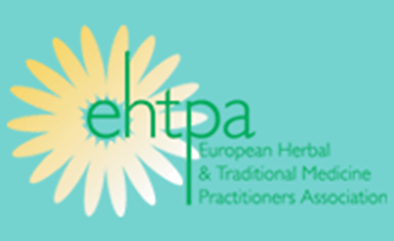 The European Herbal and Traditional medicine Practitioners Association (EHTPA) is an umbrella organisation representing professional associations of herbal/traditional medicine practitioners offering variously western herbal medicine, Chinese herbal medicine, Ayurveda and traditional Tibetan medicine. Founded in 1993, the EHTPA is dedicated to the development of herbal/traditional medicine, preserving and enhancing the legal basis of practice across EU Member States and promoting best practice throughout the traditions.
The European Herbal and Traditional medicine Practitioners Association (EHTPA) is an umbrella organisation representing professional associations of herbal/traditional medicine practitioners offering variously western herbal medicine, Chinese herbal medicine, Ayurveda and traditional Tibetan medicine. Founded in 1993, the EHTPA is dedicated to the development of herbal/traditional medicine, preserving and enhancing the legal basis of practice across EU Member States and promoting best practice throughout the traditions.
 The Organisation for Professionals in Regulatory Affairs, is the professional membership organisation for individuals who work in healthcare regulatory affairs across Europe, be it in pharmaceuticals, medical devices or veterinary medicines.
Regulatory consultants with experience in herbals may be identified via the Services Directory.
The Organisation for Professionals in Regulatory Affairs, is the professional membership organisation for individuals who work in healthcare regulatory affairs across Europe, be it in pharmaceuticals, medical devices or veterinary medicines.
Regulatory consultants with experience in herbals may be identified via the Services Directory.
The Eden Project at Bodelva, near St. Austell in Cornwall, is an educational charity and major tourist attraction. With iconic architecture, geodesic domes and stunning gardens, home to over a million plants and the world’s largest indoor rainforest, Eden has been built as a place to explore ideas and innovations in sustainability, to help us tread lighter on the planet.
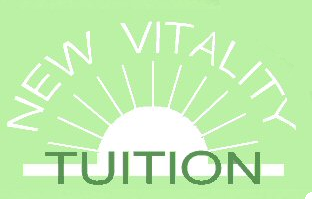
Discovering Herbal Medicine, a one-year distance-learning course , offers a fascinating introduction to medicinal plants, their properties and uses. Designed to have wide appeal, it has been appreciated by aspiring herbal practitioners, health professionals and many others. Although a non-practitioner course, it is of a sufficiently high standard to have been accredited by the BHMA. One-day seminars are held in Reading in early summer and autumn.
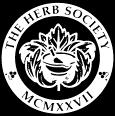
The Herb Society is an internationally-renowned educational charity dedicated to encouraging the appreciation and use of herbs . It brings together professionals and amateurs interested in herbs for culinary, cosmetic, medicinal or horticultural use and also has a website for schools. The majority of members are based in the UK but membership is worldwide. The Society has its national herb garden at Sulgrave Manor near Banbury.
 The American Herbal Pharmacopoeia® (AHP), a California-based organization formed in 1995, produces very comprehensive monographs on botanical raw materials. Each monograph on a herbal substance includes identification and quality control methods and criteria, copiously illustrated with macroscopic and microscopic characteristics, HPTLC and/or HPLC chromatograms etc.; sections on historical use, commercial sources and constituents (including structural diagrams); an extensive review of traditional and scientific literature relating to efficacy; indications and dosages; a detailed safety profile and other features. Some 30 monographs have been published to date and can be purchased as bound booklets or pdfs. The AHP also produced a major textbook, published in 2012, Botanical Pharmacognosy: Microscopic Characterization of Botanical Medicines.
The American Herbal Pharmacopoeia® (AHP), a California-based organization formed in 1995, produces very comprehensive monographs on botanical raw materials. Each monograph on a herbal substance includes identification and quality control methods and criteria, copiously illustrated with macroscopic and microscopic characteristics, HPTLC and/or HPLC chromatograms etc.; sections on historical use, commercial sources and constituents (including structural diagrams); an extensive review of traditional and scientific literature relating to efficacy; indications and dosages; a detailed safety profile and other features. Some 30 monographs have been published to date and can be purchased as bound booklets or pdfs. The AHP also produced a major textbook, published in 2012, Botanical Pharmacognosy: Microscopic Characterization of Botanical Medicines.
 PubMed is a free database provided by the U.S. National Library of Medicine (NLM), the world’s largest biomedical library, based on the campus of the National Institutes of Health (NIH) in Bethesda, Maryland. It comprises more that 23 million citations (usually with an abstract) for biomedical literature from MEDLINE, life science journals and online books; many citations include links to full-text content from PubMed Central and publisher websites. For anyone seeking the latest scientific literature on biomedical topics PubMed offers an excellent resource. Simply enter a botanical name or other term into the Searchbox to obtain an up-to-date list of relevant citations.
PubMed is a free database provided by the U.S. National Library of Medicine (NLM), the world’s largest biomedical library, based on the campus of the National Institutes of Health (NIH) in Bethesda, Maryland. It comprises more that 23 million citations (usually with an abstract) for biomedical literature from MEDLINE, life science journals and online books; many citations include links to full-text content from PubMed Central and publisher websites. For anyone seeking the latest scientific literature on biomedical topics PubMed offers an excellent resource. Simply enter a botanical name or other term into the Searchbox to obtain an up-to-date list of relevant citations. 
